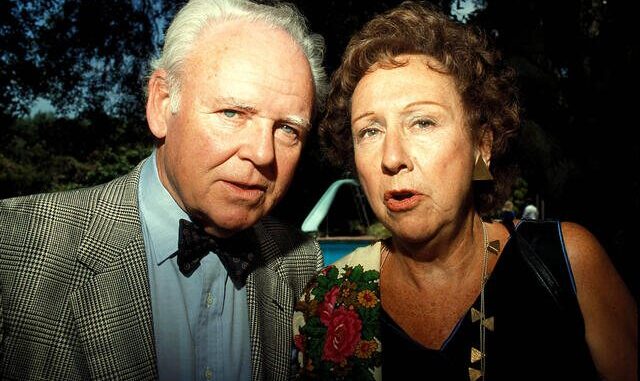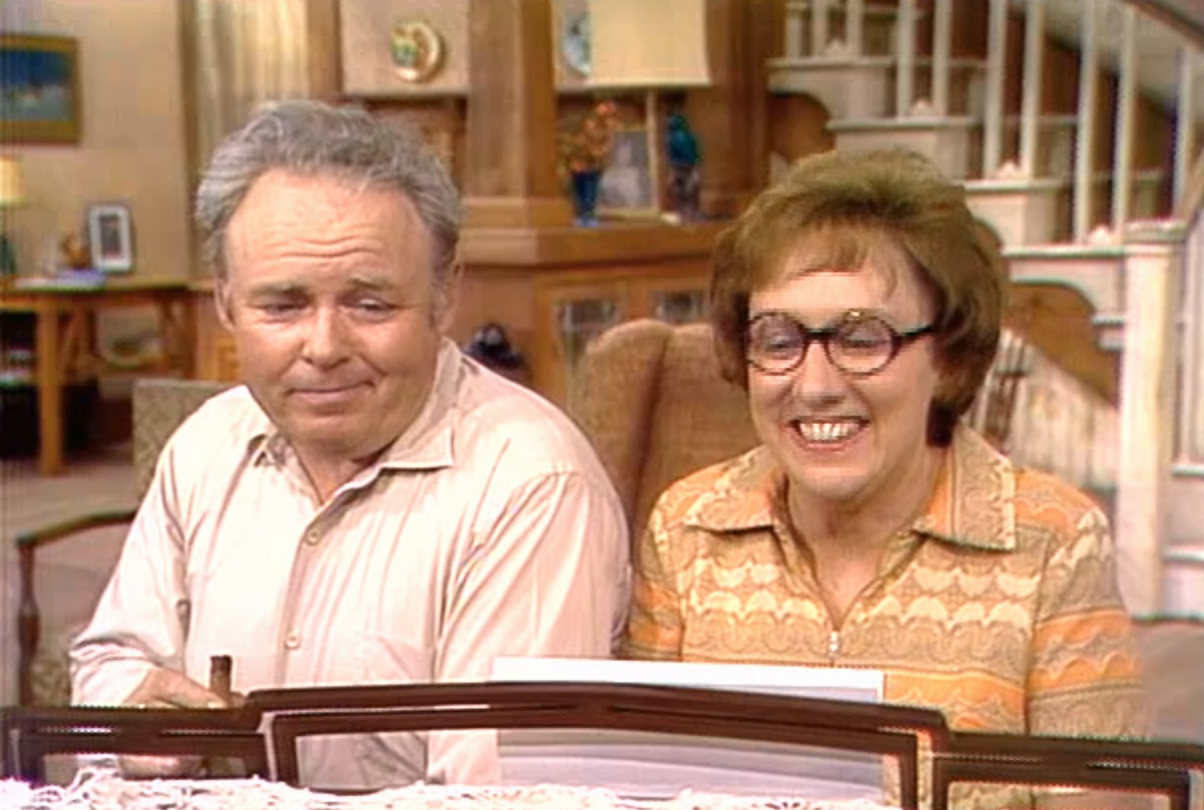
The 1970s marked a golden era for television sitcoms, a time when family dynamics and social issues were explored through humor and heart. Among the standout couples of this vibrant decade, none captured the essence of comedic brilliance and relatable struggles quite like Archie and Edith Bunker, portrayed by the legendary Carroll O’Connor and Jean Stapleton in the groundbreaking series “All in the Family.” Their on-screen chemistry, characterized by witty banter and a deep-rooted affection, resonated profoundly with audiences and transformed the sitcom landscape.
Archie Bunker, with his irascible personality and unapologetic opinions, represented a particular segment of American society—often outlandish yet painfully honest. His outrageous remarks, such as, “God can do anything! He can turn your jawbone into an ass,” were both humorous and reflective of the era’s social tensions. In contrast, Edith embodied warmth, compassion, and an innate ability to diffuse Archie’s fiery temperament with her gentle wisdom and understanding. Her iconic line, “Oh, Archie,” became a signature response that perfectly encapsulated her blend of patience and humor in the face of her husband’s antics.
What set Archie and Edith apart was their authenticity. They navigated the complexities of marriage with all its ups and downs, offering viewers a lens through which to explore their own familial relationships. Their dynamic illuminated the struggles of communication, respect, and love in a way that was both entertaining and enlightening, paving the way for future sitcom couples to embrace similar themes.
As we delve deeper into this nostalgic look back, it’s clear that Archie and Edith were more than just characters; they were a reflection of the American family experience during a transformative time. Their influence can still be felt in modern television, where the blending of humor with real-life issues remains a hallmark of successful storytelling.
Join me as we celebrate the remarkable legacy of Archie and Edith Bunker, examining how their portrayal not only entertained but also challenged societal norms and provided a voice to countless families navigating their own struggles during the tumultuous 1970s. Their story is a testament to the power of laughter in understanding life’s complexities, making them an enduring symbol of the sitcom genre.
